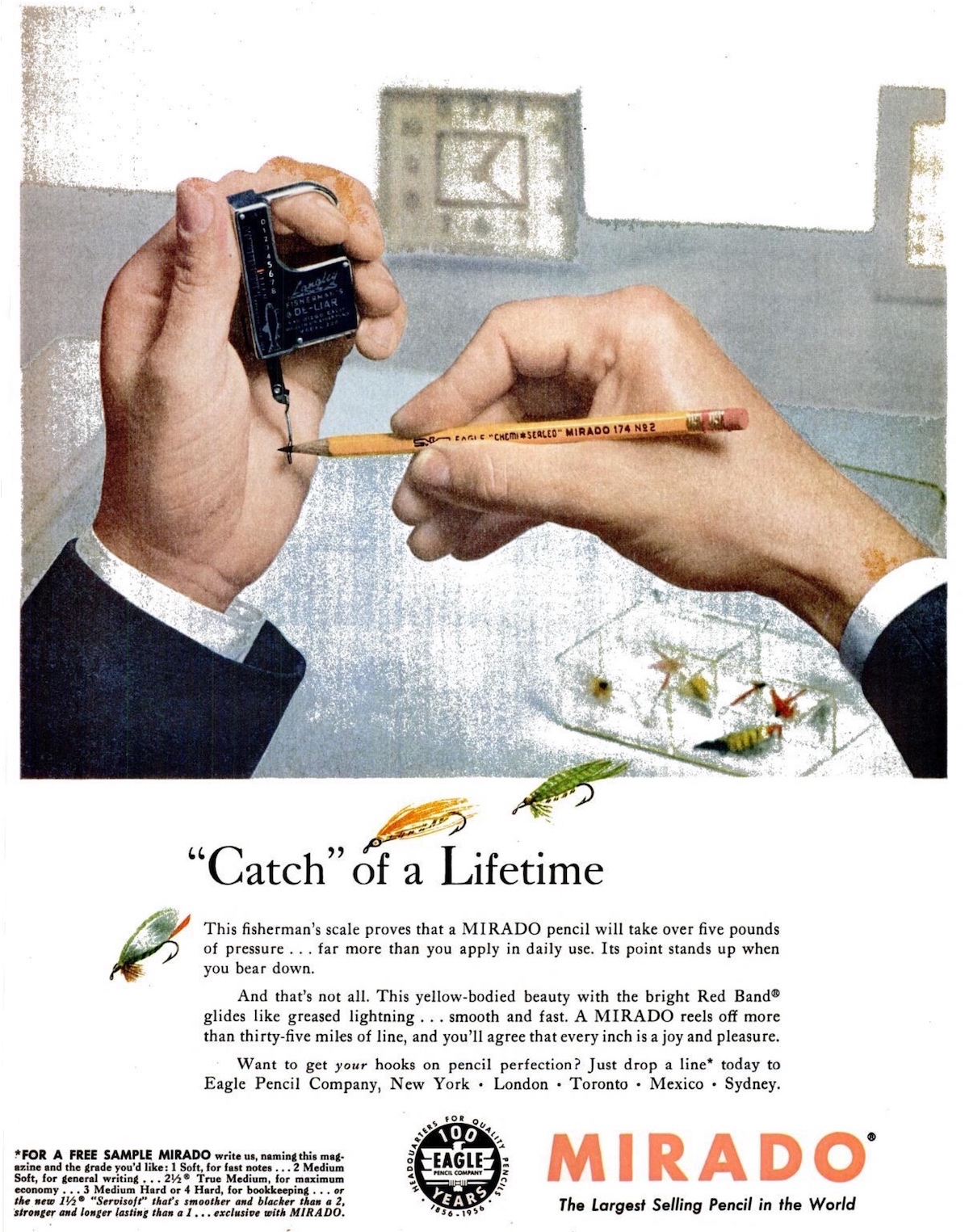[One to four stars. Four sentences each. No spoilers.]
The Big Night (dir. Joseph Losey, 1951). John Drew Barrymore as George La Main, a son who seeks to avenge his father’s humiliation at the hands of a sadistic sportswriter. The depiction of night people — an alcoholic professor (Philip Bourneuf), his mistress (Dorothy Comingore), her sister (Joan Lorring), a Billie Holiday-like singer (Mauri Leighton) — gives the film something of a noir element. George’s torment looks ahead to Jim Stark and Plato in Rebel Without a Cause. George, holding a revolver: “Think I’m a kid now?” ★★★★
*
Mike Wallace Is Here (dir. Avi Belkin, 2019). A documentary built with many great clips of Wallace as interviewer and interviewee, aggressive, skeptical, but also painfully honesty about his failures as a father and his struggles with depression (nothing though about the toxic environment for women at 60 Minutes). What I didn’t know before watching this film: Wallace was everywhere in 1950s television: as actor, pitchman, interviewer, and game-show host. You’ll have to watch to learn what changed him. The film would benefit from captions identifying interview participants, some of whom are far from recognizable; showing their faces with their names in the closing credits (and no other information) does little to enhance the viewer’s experience (Emile-Zola-Berman-who?). ★★★
*
2 or 3 Things I Know About Her (dir. Jean-Luc Godard, 1967). “Her” is “the Paris region,” among other things, and the film offers an unromanticized image of the city and environs, nothing but highway construction and brutalist architecture. Scenes from the life of Juliette Jeanson (Marina Vlady), wife, mother, and part-time prostitute, recall Godard’s Vivre sa vie — as in that film a man in a café plays pinball as people chat. There’s a strong element of Wittgenstein in the narration and several conversations that evoke the idea of a language game. Those are three things I know about this film, which baffled and fascinated me. ★★★★
*
Edge of the City (dir. Martin Ritt, 1957). Strong overtones of On the Waterfront in this story of friendship and violence on the Manhattan docks. What’s distinctive about the film is its depiction of a friendship that crosses the color line, as longshoreman Tommy Tyler (Sidney Poitier) befriends new-hire Axel Nordmann (John Cassavetes). Tommy is a happy family man (with Ruby Dee making brief appearances as his wife); moody Axel harbors some terrible secrets. Supervisor Charlie Malick (Jack Warden) makes Axel’s life hell, with consequences both predictable and unexpected. ★★★★
*
Try and Get Me, aka The Sound of Fury (dir. Cy Endfield, 1950). “Unrelentingly grim,” said TCM’s Eddie Muller, as an unemployed husband and father (Frank Lovejoy) takes up work as a getaway driver for a preening and increasingly vicious criminal (Lloyd Bridges). But it’s not just a crime story: the film dwells at length on the role of journalists in stoking populist rage. Two highlights: Renzo Cesana as Dr. Vido Simone, a stiffly serious philosophical scientist, and Katherine Locke as Hazel Weatherwax, a desperately lonely manicurist. And one more: the final extended sequence, utterly gripping. ★★★★
*
Pain and Glory (dir. Pedro Almodóvar, 2019). A work not of strict autobiography but of self-revealing humanity, as Salvador Mallo (Antonio Banderas), a movie director in the twilight of his career, struggles with past success, present inertia, and chronic pain. Proustian moments of involuntary memory (beginning with a pianist in a restaurant) and two extraordinary coincidences lead to scenes of childhood and sexual awakening, to a meeting with an old lover, and to memories of Salvador’s adult relationship with his mother Jacinta (Penelope Cruz/Julieta Serrano). (It’s no coincidence that a file name beginning “Auster” appears on Salvador’s Mac: Paul Auster has much to say about chance and coincidence as legitimate devices in fiction.) The most moving scenes: the lovers’ reunion, and Salvador with his mother in her old age. ★★★★
*
Judy (dir. Rupert Goold, 2019). Judy Garland in 1968, booked for five weeks in London, with brief flashbacks to her life as a teenager in the studio system that did much to destroy her life. Not so much a movie as a sometimes thrilling, sometimes harrowing one-woman show, with Renée Zellweger channeling Garland’s fragile, tough presence with what seems to me eerie fidelity. As a singer, Zellweger is hardly Garland’s equal —but how could she be? The best moments: omelets, a cake, and a final performance. ★★★★
*
Bridget Jones’s Diary (dir. Sharon Maguire, 2001). We’d never seen it, so it seemed the appropriate follow-up to Judy. As Bridget Jones, Renée Zellweger is a charming, attractive mess of a human being. So why are the only men on her romantic horizon a pair of self-regarding twits, one without scruples (Hugh Grant), the other (Colin Firth) so emotionally constipated that he struggles to say “I like you”? As Elaine says, it’s a Bizarro World Hallmark movie, with cigarettes, vodka, sex, and strained overtones of Pride and Prejudice. ★★
*
The File on Thelma Jordon (dir. Robert Siodmark, 1949). YouTube comes through again, with a satisfyingly noirish film we’d never heard of. It gives little away to reveal that the story is a variation on an earlier Barbara Stanwyck film, with Stanwyck as Thelma Jordon, Wendell Corey as an assistant DA, and Paul Kelly as Corey’s boss. A little too much comedy, but also genuine suspense and mystery, particularly when old Aunt Vera wanders the house at night. My favorite line: “Maybe I like being picked up by a guy on a binge.” ★★★
*
He Ran All the Way (dir. John Berry, 1951). John Berry’s other films include Claudine and The Bad News Bears Go to Japan — marking him, surely, as a jack of many trades, at least. Here Nick Robey (John Garfield, in his last film appearance) and Peg Dobbs (Shelley Winters) make an awkward pair thrown together by circumstance and criminal desperation. Nice work by Wallace Ford as Peg’s father, Gladys George as Nick’s mother, and James Wong Howe as cinematographer, working in stark black and white. “Get a good car, baby, a nice car.” ★★★★
*
Two by Yasujiro Ozu
A Story of Floating Weeds (1934). This film, a silent, tells a story of betrayal, jealousy, and revenge among members of a traveling Kabuki troupe, as one player discovers the Master’s secret life, both past and present. The actors are understated, with the smallest gestures and changes in expression saying everything, and the cinematography is striking, with the camera stationary, and often at floor level, in what I now know is called a tatami shot, but which suggests to me the perspective of an audience sitting at the very edge of a stage. As the Gilgamesh poet says, there is no permanence: tobacco smoke drifts through the air, a lost wallet floats down a river, and players travel by train from town to town. A caution: “Don’t get mixed up with a traveling player like me.” ★★★★
Floating Weeds (1959). Which film to prefer and why: questions that must be the stuff of hundreds of film-studies assignments. The 1934 film has a concentrated intensity that’s missing from this more diffuse story, in which broad comedy with theater men and local women takes up too much screentime. Things improve when, with about an hour to go, the film begins to closely follow 1934. But the Master here seems hard-headed and self-righteous rather than agonized, and his mistress lacks the eerie blank expression we see in 1934. ★★★
[Madame Michel in Muriel Barbery’s novel The Elegance of the Hedgehog is devoted to the films of Yasujiro Ozu, so it seemed only right to see a couple after reading. ]
Related reading
All OCA film posts (Pinboard)






